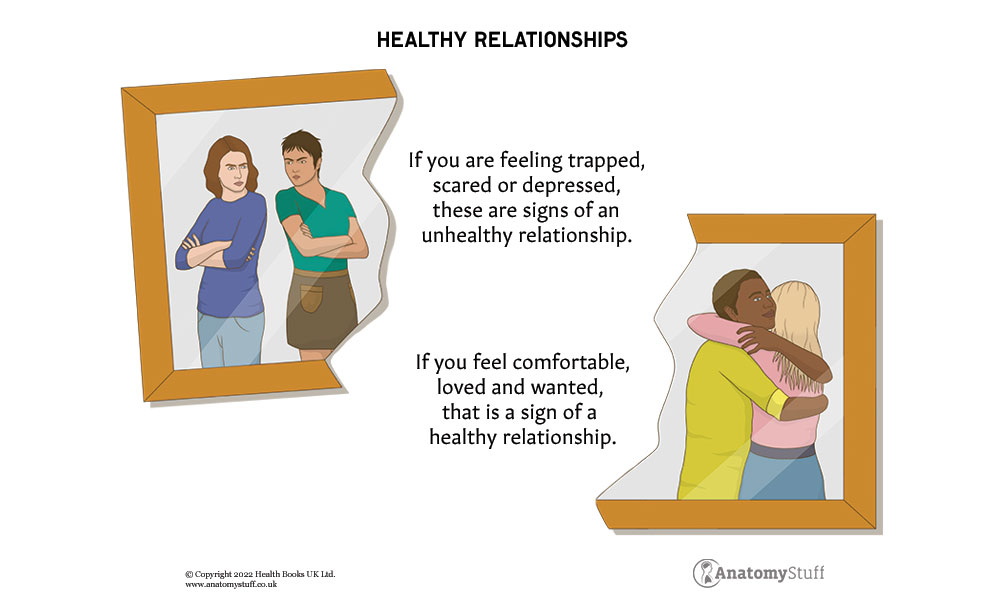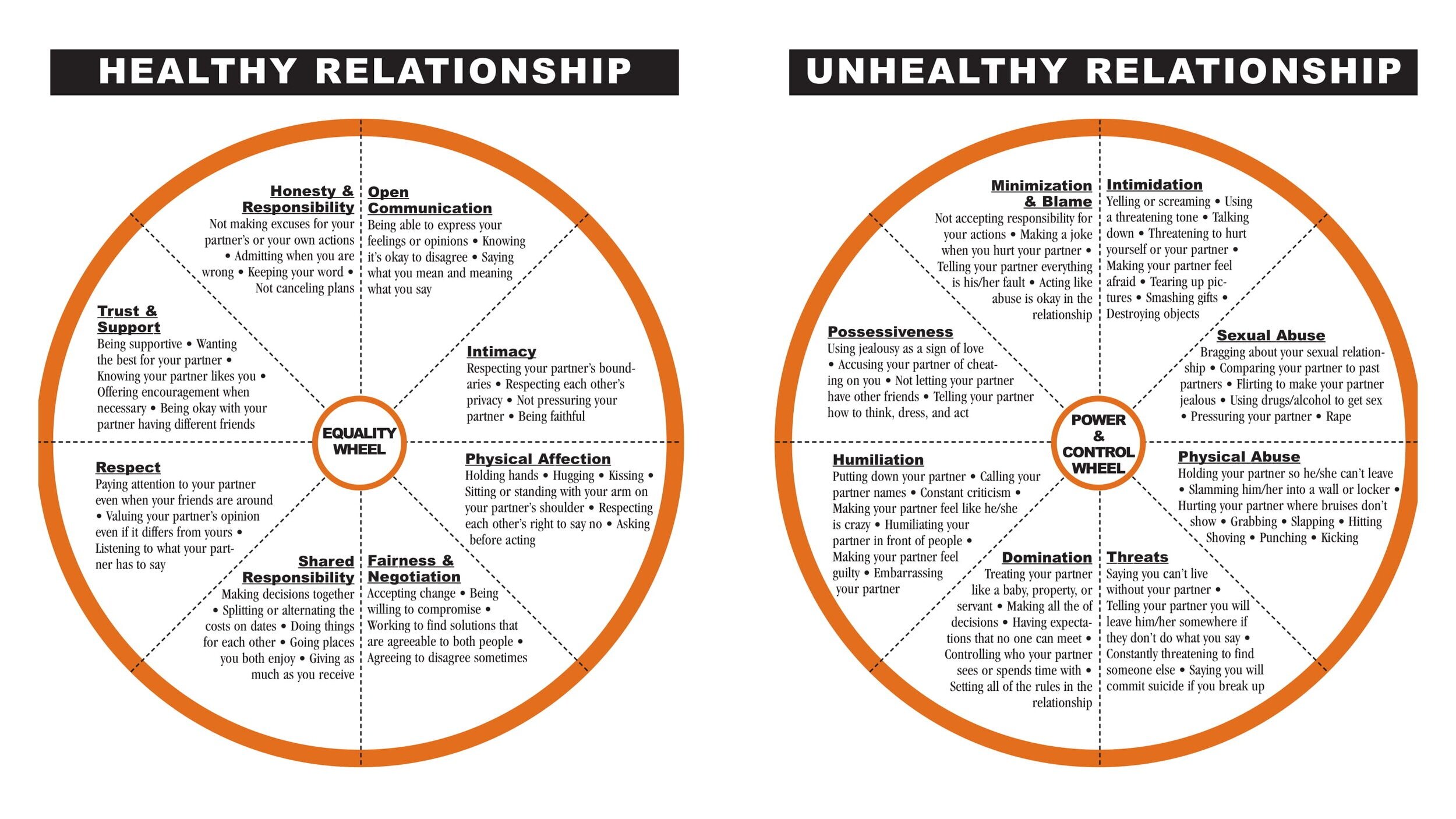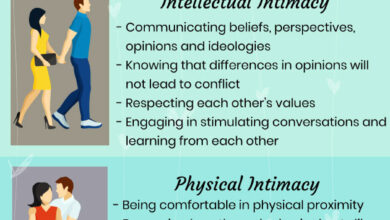Trusting Your Instincts: Recognizing Signs of a Healthy Relationship


Understanding Healthy Relationships
Recognizing Signs of a Healthy Relationship
In his quest to understand healthy relationships, he realized that there are certain signs to look for. **A comparison between healthy and unhealthy relationships** can help individuals recognize what is truly beneficial for their well-being. In a healthy relationship, there is mutual respect, trust, communication, and support. Being able to openly express thoughts and feelings without fear of judgment is a crucial aspect to watch out for. Additionally, both parties involved show empathy and strive to understand each other's perspectives.
Benefits of Trusting Your Instincts
He acknowledged the importance of trusting his instincts when it comes to relationships. **Comparing situations where he trusted his instincts versus when he ignored them** highlighted the positive outcomes that stemmed from intuition. Acting upon gut feelings can prevent potential conflicts and guide individuals towards healthier relationship choices. Trusting instincts also fosters self-confidence and self-awareness, which are essential for maintaining fulfilling relationships.

Communication in Relationships
Open Communication as a Sign of a Healthy Relationship
Recognizing the importance of open communication in relationships is crucial. **A direct comparison between relationships with open and closed communication** shows that transparency fosters understanding and strengthens the bond between individuals. By openly sharing thoughts, concerns, and aspirations, partners can build trust and maintain a supportive environment. **A healthy relationship thrives on effective communication, where both parties feel heard and valued**.
Nonverbal Cues and Emotional Intelligence
Understanding nonverbal cues and emotional intelligence play a significant role in relationship dynamics. **Comparing instances where emotional intelligence was utilized versus overlooked** highlights how these factors influence interactions. Being attuned to nonverbal cues can enhance comprehension and empathy within the relationship. Emotional intelligence enables individuals to navigate conflicts with sensitivity and understanding. **Developing emotional intelligence supports a deeper connection and fosters mutual growth**.

Building Trust and Respect
Trust as a Foundation for Healthy Relationships
**When examining relationships, the role of trust becomes paramount**. In relationships characterized by trust, individuals feel secure, respected, and understood. Partners can rely on each other and believe in the honesty and integrity of their significant other. **In contrast, relationships lacking trust may experience insecurity, doubts, and strain**. Trust serves as a pillar in establishing a strong and enduring bond between partners.
Respectful Behaviors and Boundaries
**Respectful behaviors and clear boundaries contribute to a harmonious relationship environment**. Partners who demonstrate respect for each other's opinions, feelings, and choices foster a sense of value and appreciation. Boundaries set mutually agreed limits and ensure that each partner's individuality is respected. **Conversely, situations where boundaries are disregarded or disrespect is exhibited can lead to conflict and emotional distress**. Establishing respectful behaviors and boundaries cultivates a relationship based on understanding, consideration, and harmony.

Conflict Resolution Strategies
Effective Conflict Resolution in Healthy Relationships
**In healthy relationships, effective conflict resolution is crucial**. When conflicts arise, addressing them promptly and constructively can strengthen the relationship. **Partners who communicate openly, listen actively, and work towards solutions together are better equipped to navigate challenges**. By approaching conflicts with a willingness to understand each other's perspectives and find common ground, couples can resolve issues in a respectful manner.
Handling Disagreements with Empathy
**Approaching disagreements with empathy can foster understanding and connection**. Showing empathy involves acknowledging and validating each other's emotions and viewpoints. **When partners empathize with each other, they create a supportive environment where both feel heard and valued**. By prioritizing empathy during disagreements, couples can build a stronger foundation of trust and respect in their relationship.

Individual Growth and Support
Supportive Dynamics in Healthy Relationships
**In healthy relationships, individuals experience growth and support that contribute to their well-being**. Partners who prioritize each other's personal development create a nurturing environment where both individuals can thrive. **Supportive dynamics in relationships involve offering encouragement, understanding, and validation**. **By fostering an atmosphere of support, partners can enhance their emotional connection and foster a sense of security**.
Encouraging Personal Growth and Autonomy
**Encouraging personal growth and autonomy in a relationship allows individuals to maintain their independence while fostering a sense of togetherness**. Partners who encourage each other to pursue their goals and aspirations create a space for personal development. **By respecting each other's autonomy and providing support when needed, couples can strengthen their bond and create a fulfilling partnership**.

Red Flags in Relationships
Identifying Warning Signs in Relationships
Individuals should be vigilant in identifying warning signs in relationships that may indicate unhealthy dynamics. Red flags can manifest as lack of respect, communication issues, or patterns of manipulation. Recognizing these signs early on can help prevent further emotional harm and create a space for open dialogue.
Dealing with Manipulative or Controlling Behaviors
When faced with manipulative or controlling behaviors in a relationship, individuals should set clear boundaries and communicate their needs assertively. Seeking support from trusted friends, family, or a therapist can provide guidance on how to address these behaviors effectively. Establishing healthy communication patterns and prioritizing mutual respect are crucial in overcoming manipulation and fostering a balanced partnership.

Cultivating Mutual Happiness
Creating Joy and Fulfillment Together
Individuals need to prioritize creating joy and fulfillment together in a relationship by engaging in activities that bring happiness to both parties. Open communication about each other's needs and desires can help in fostering a sense of shared happiness and satisfaction. Regularly expressing appreciation and gratitude towards each other can also strengthen the bond and contribute to a positive relationship dynamic.
Shared Goals and Building a Positive Future
It is important for partners to align on shared goals and aspirations to build a positive future together. By working towards common objectives, individuals can create a sense of unity and teamwork in the relationship. Supporting each other's dreams and ambitions can lead to a fulfilling and supportive partnership that cultivates mutual happiness.

Seeking Help When Needed
Importance of Seeking Support in Relationships
Partners should acknowledge the significance of seeking support when necessary, as it plays a crucial role in maintaining a healthy and harmonious relationship. Recognizing the need for assistance shows maturity and a commitment to the well-being of the relationship as a whole. Whether it is seeking advice from trusted individuals or professional help, being open to accepting support demonstrates a willingness to overcome challenges together.
Therapeutic Resources and Relationship Counseling
Utilizing therapeutic resources such as relationship counseling can provide couples with the tools and guidance needed to navigate complex issues and improve communication. Professional intervention can offer fresh perspectives and strategies to address underlying concerns effectively. Engaging in therapy together can strengthen the emotional bond and create a safe space for open dialogue and resolution of conflicts.

Seeking Help When Needed
Importance of Seeking Support in Relationships
Partners should acknowledge the significance of seeking support when necessary, as it plays a crucial role in maintaining a healthy and harmonious relationship. Recognizing the need for assistance shows maturity and a commitment to the well-being of the relationship as a whole. Whether it is seeking advice from trusted individuals or professional help, being open to accepting support demonstrates a willingness to overcome challenges together.
Therapeutic Resources and Relationship Counseling
Utilizing therapeutic resources such as relationship counseling can provide couples with the tools and guidance needed to navigate complex issues and improve communication. Professional intervention can offer fresh perspectives and strategies to address underlying concerns effectively. Engaging in therapy together can strengthen the emotional bond and create a safe space for open dialogue and resolution of conflicts.
Conclusion
Celebrating Healthy Relationship Dynamics
Considering the importance of seeking help when needed can lead to healthier dynamics within a relationship and foster a sense of unity and cooperation.
Trusting Your Instincts for Relationship Happiness
Trusting your instincts and being open to guidance can contribute to building a strong foundation for a happy and fulfilling relationship.




